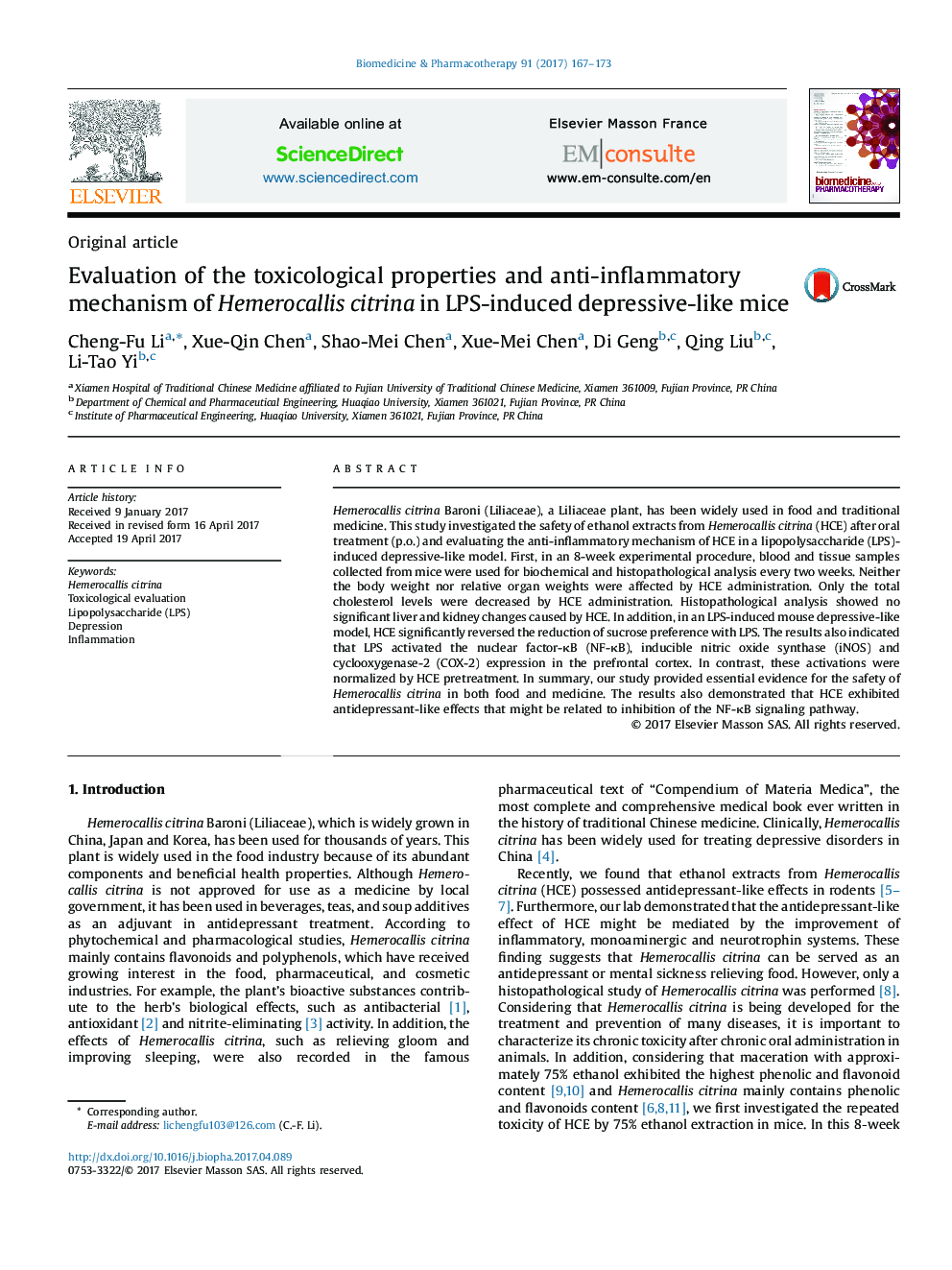| Article ID | Journal | Published Year | Pages | File Type |
|---|---|---|---|---|
| 5552931 | Biomedicine & Pharmacotherapy | 2017 | 7 Pages |
Hemerocallis citrina Baroni (Liliaceae), a Liliaceae plant, has been widely used in food and traditional medicine. This study investigated the safety of ethanol extracts from Hemerocallis citrina (HCE) after oral treatment (p.o.) and evaluating the anti-inflammatory mechanism of HCE in a lipopolysaccharide (LPS)-induced depressive-like model. First, in an 8-week experimental procedure, blood and tissue samples collected from mice were used for biochemical and histopathological analysis every two weeks. Neither the body weight nor relative organ weights were affected by HCE administration. Only the total cholesterol levels were decreased by HCE administration. Histopathological analysis showed no significant liver and kidney changes caused by HCE. In addition, in an LPS-induced mouse depressive-like model, HCE significantly reversed the reduction of sucrose preference with LPS. The results also indicated that LPS activated the nuclear factor-κB (NF-κB), inducible nitric oxide synthase (iNOS) and cyclooxygenase-2 (COX-2) expression in the prefrontal cortex. In contrast, these activations were normalized by HCE pretreatment. In summary, our study provided essential evidence for the safety of Hemerocallis citrina in both food and medicine. The results also demonstrated that HCE exhibited antidepressant-like effects that might be related to inhibition of the NF-κB signaling pathway.
